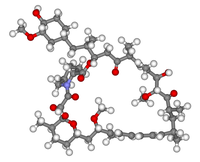
Photo from wikipedia
represented in clinical trials, and to frame opportunities to improve patient outcomes. As a result, RWE is not a panacea to resolve all residual uncertainties from clinical trial results, and… Click to show full abstract
represented in clinical trials, and to frame opportunities to improve patient outcomes. As a result, RWE is not a panacea to resolve all residual uncertainties from clinical trial results, and well ‐ adjusted multivariate analysis will never equalize a careful randomized study. 18 Randomization intrinsically minimizes bias in patient selection, ensuring fair comparisons across balanced groups. Ideally RWE should primarily be used to inform policymaking, through analysis of patterns of health service utilization and identification of structural barriers to access to care, and to help shape strategies for patient ‐ centric coverage and reim-bursement decisions, including in the context of health technology assessments. 19,20 In conclusion, the SEER ‐ analysis by Goyal et al. 2 presents confirmatory RWE for the benefit of CDK4/6 inhibitors observed in clinical trials for endocrine sensitive, de novo, metastatic BC in an older population. However, this evidence is not a substitute for the results from phase 3, randomized clinical trials. It is encouraged that high ‐ quality RWE in the context of fully adjusted multivariable analyses be collected and reported, similar to the present study, that account for context and socioeconomic determinants of health. This work will not only yield confirmatory information for efficacy and safety, but also offers the opportunity to identify unmet needs at the population level and inform better health policies to ultimately deliver equitable health care.
Journal Title: Cancer
Year Published: 2023
Link to full text (if available)
Share on Social Media: Sign Up to like & get
recommendations!